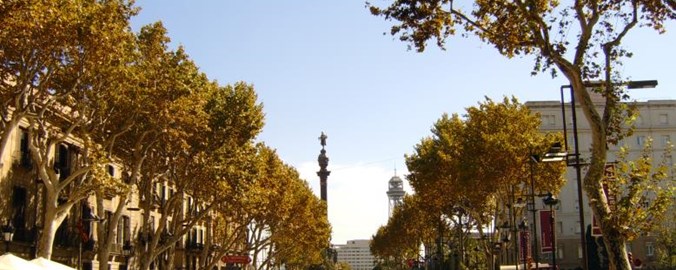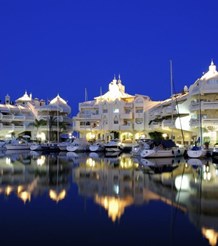
Spain welcomes nearly one Million less Tourists than predicted for first Half of 2018
Between January and June this year, Spain recorded a 2.2% drop, close to one million, in tourist numbers, as well as a 3.1% decrease in overnight stays, according to the National Institute of Statistics (INE). Fears of excessive heat this summer and protests by locals against the onslaught of holidaymakers seen in recent years may be to blame for this fall in tourists.
Last year some 82 million tourists visited Spain, of which 42 million hailed from the UK, France and Germany. The drop in tourist numbers has alerted the Spanish government and tourism chiefs to potential problems. It is feared stagnation or even a decline of tourism for the third quarter of this year would result in a serious drop in revenue. A report by Spain's official tourist board, Turespana, revealed as much in August 2018.
Turespana forecasts a 4.2% drop in the number of UK holidaymakers coming to Spain for the third quarter of 2018. Brits, who do come to Spain are, however, forcast to spend 5.3% more this summer and are expected to account for 1.9% more of overnight stays in 2018.
Tourism Fatigue?
In some parts of Spain there were so many tourists last year that locals staged protests, for example in Mallorca, where hotels were targeted and protest groups gathered at Mallorca Airport. Some Palma de Mallorca hotels saw graffity sprayed over doors with slogans saying "tourism kills the city".
Similar protests were staged in Barcelona this summer, where protesters stormed a sightseeing bus. To counter fears over tourism companies like Airbnb.com taking over large parts of available accommodation, Barcelona officials already gave the go-ahead for new legislation aimed to curb excesses of tourism in January 2017. A new law restricts the construction of hotels in the city and prevents licences from being issued to new tourist accommodation rentals such as Airbnb.com. The latter type of tourist accommodation has had a detrimental affect on availability of long-term rentals to locals. Property, especially up-market houses and apartments, is becoming scarce in the Balearics for example, where an ever-hungry foreign appetite for Balearic holiday homes has seen prices rocket in recent years.
In Mallorca officials introduced similar legislation in April this year to prevent short-term flat rentals in Palma de Mallorca being used for tourism. The island's Council also introduced a tourist tax to make the most of the arrival of more than 10,000 passengers a day at the island's airport during peak season, hoping that the new tax would curb numbers at the same time.
In 2010, Mallorca welcomed some six million tourists - by last year, this number had increased to nine million. Far too many, protesters say, who fear that further development will exhaust the island's natural resorces and spoil its beauty completely. There are fears of an environmental catastrophe waiting to happen, protesters said at Mallorca Airport this summer.
In many of Spain's most popular tourist destinations a certain "tourismphobia" has set in. Local are asking for better control and more police to ensure that some of the worst of tourists' behaviour is being checked, such as drinking in the streets and brawling late at night, as well as walking into shops and tourist attractions dressed in little more than swimming trunks and flipflops. But local businesses in Mallorca are also asking for "more control and police", to prevent more "tourismphobia" uprisings that will put off visitors. Many tourists resorts, among them Marbella, have already applied far stricter legislation to tourists this summer and have introduced more policing in the city centre to calm local residents' fears.






